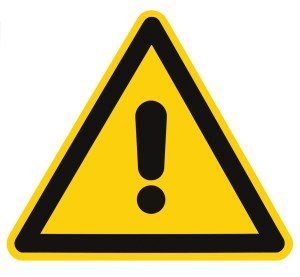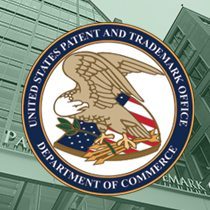This is the second of a two-part series on reciprocal discipline in the USPTO. To read the first part click here.
 Once the notice requirements set forth in Sections 11.24(a) and (b) have been satisfied, Section 11.24(d) dictates the manner in which the disciplinary hearing shall proceed. In accordance with Section 11.24(d), “the USPTO Director shall hear the matter . . . .” 37 C.F.R. § 11.24(d)(1). Furthermore, unless “the USPTO Director determines that an oral hearing is necessary,” the USPTO Director “shall” hear the matter “on the documentary record.” Id.
Once the notice requirements set forth in Sections 11.24(a) and (b) have been satisfied, Section 11.24(d) dictates the manner in which the disciplinary hearing shall proceed. In accordance with Section 11.24(d), “the USPTO Director shall hear the matter . . . .” 37 C.F.R. § 11.24(d)(1). Furthermore, unless “the USPTO Director determines that an oral hearing is necessary,” the USPTO Director “shall” hear the matter “on the documentary record.” Id.
What occurs next in the process depends completely upon whether the practitioner chooses to exercise his or her right under 37 C.F.R. § 11.24(b)(3) to “file a response with the USPTO Director and the OED Director . . . . establishing a genuine issue of material fact . . . . that the imposition of the identical [sanction imposed by the other jurisdiction] would be unwarranted and the reasons for that claim.”
If the practitioner fails to file such a response, then it is “game over” – the USPTO Director “shall impose the identical public censure, public reprimand, probation, disbarment, [or suspension . . . .” imposed by the other jurisdiction. 37 C.F.R. § 11.24(d)(1). If the practitioner timely files a response under Section 11.24(b)(3), then “the USPTO Director shall consider” that response. 37 C.F.R. § 11.24(d)(1).
After considering the practitioner’s response, the USPTO Director “shall impose the identical” discipline “unless the practitioner clearly and convincingly demonstrates, and the USPTO Director finds there is a genuine issue of material fact” that:
- The procedure elsewhere was so lacking in notice or opportunity to be heard as to constitute a deprivation of due process;
- There was an “infirmity of proof” in the other proceeding;
- The imposition of the same disciplinary sanction would result in “grave injustice;” or
- The practitioner was not, in fact, disciplined in the other jurisdiction.
37 C.F.R. § 11.24(d)(1)(i)-(iv).
Several points are noteworthy about how the reciprocal discipline process differs from ordinary USPTO disciplinary proceedings.
First, the burden of production and persuasion is always on the practitioner, not the OED Director. This burden-shifting differs from imposition of non-reciprocal discipline in which OED bar counsel bears the burden of production and persuasion.
Second, the practitioner must prove that the same discipline should not be imposed by the “clear and convincing” evidentiary standard. This is the same burden a practitioner bears in establishing an affirmative defense to a disciplinary charge. If the practitioner fails to respond (or if the response fails to meet his or her burden), then whatever public discipline was imposed in the other jurisdiction is also imposed by the USPTO Director.
Third, only the practitioner has standing to seek a different disciplinary sanction. Neither the USPTO Director nor the OED Director has standing to seek a greater disciplinary sanction than that imposed by the other jurisdiction. In other words, the discipline imposed by the other jurisdiction operates as a ceiling, not a floor, to the reciprocal discipline the USPTO may impose.
 The analysis in a reciprocal discipline case generally collapses to one issue: whether the practitioner has provided the USPTO Director with clear and convincing evidence sufficient to raise a genuine issue of material fact that one of the Selling factors exists: i.e., denial of due process, infirmity of proof, or grave injustice. Re-litigation of the merits of the other jurisdiction’s disciplinary decision is not an option for either the practitioner or the OED Director.
The analysis in a reciprocal discipline case generally collapses to one issue: whether the practitioner has provided the USPTO Director with clear and convincing evidence sufficient to raise a genuine issue of material fact that one of the Selling factors exists: i.e., denial of due process, infirmity of proof, or grave injustice. Re-litigation of the merits of the other jurisdiction’s disciplinary decision is not an option for either the practitioner or the OED Director.
Indeed, the USPTO Director has consistently interpreted 37 C.F.R. § 11.24 as both prohibiting re-litigation and providing for “narrow” review of limited issues. See In re Brufsky, No. D2013-12, at 3 (USPTO Dir. Feb. 4, 2014) (holding the standard under Selling is “narrow” and that “[‘a Federal court, or here, the USPTO Director] is not sitting as a court of review to discover errors in the [hearing judge’s] or the [state] court’s proceedings.’”) (parentheticals in original) (citing In re Zdravkovich, 634 F.3d 574, 578 (D.C. Cir. 2011)); In re Shippey, No. D2012-02, at 6 (USPTO Dir. June 11, 2012) (explaining 37 C.F.R. § 11.24 provides “no entitlement to a de novo review” of the state disciplinary proceeding and the USPTO’s review is “‘extremely limited’”).
In the nearly seven years since Section 11.24 went into effect, approximately 80% of respondents who were disciplined by a state disciplinary authority failed to respond to the USPTO Director’s show cause notice. In each of those cases, the USPTO Director imposed the identical disciplinary sanction imposed by the state disciplinary authority.
In each of the remaining matters, the practitioner submitted evidence and argument to the USPTO Director to try and establish a genuine issue of material fact that reciprocal discipline should not be imposed by the Office based on one of the Selling factors codified in Title 37, Section 11.24(d). In every one of those cases to date, the USPTO Director denied the practitioner’s request, finding the practitioner failed to make the requisite showing needed to raise a genuine issue of fact as to why the USPTO should not impose the same discipline imposed by the state bar.
In essence, in each one of those cases, the USPTO treats the practitioner’s response much as a district court treats a Rule 56 motion – the USPTO Director has found in every substantive challenge to imposition of reciprocal discipline that the respondent failed to meet his or her burden of raising a genuine issue of material fact and thus entered judgment as a matter of law imposing the same discipline against the practitioner that was imposed by the state disciplinary authority.
The burden of overcoming the presumption of imposing identical discipline before the USPTO is designed to be difficult. Indeed, as long as the practitioner received legally effective notice of the prior proceeding and had an opportunity to participate, as a practical matter the practitioner will not be able to demonstrate he or she was denied due process or that the prior proceeding suffered from an “infirmity of proof.” Furthermore, to date, the USPTO has never found, in any published decision, that the discipline imposed in the other jurisdiction would result in a “grave injustice” if imposed by the USPTO.
The USPTO Director readily acknowledges the difficulty practitioners face in attempting to raise a challenge under Section 11.24(d). See In re Portner, No. D2011-44, at 5 (USPTO Dir. June 22, 2012) (“The Office reiterates that, to prevent the imposition of reciprocal discipline, Respondent is required to demonstrate that he meets one of these [section 11.24(d)] factors – a task that is particularly difficult for Respondent because he stipulated to the facts” in the prior proceeding).
It will take quite an unusual set of circumstances for a practitioner to make an adequate showing required by Section 11.24(d). If “the USPTO Director determines there is no genuine issue of material fact” regarding the factors set forth in Section 11.24(d)(1)(i)-(iv), then “the USPTO Director shall enter an appropriate final order.” 37 C.F.R. § 11.24(d)(2). “Appropriate” in this context means a written order imposing “identical” discipline to what was imposed by the other jurisdiction. See id. at § 11.24(d)(1).
If, and only if, the USPTO Director determines there is a genuine issue of material fact under one or more of the Selling factors—which has never happened since the reciprocal discipline rule was promulgated in 2008—the matter is still not resolved. All that means is the USPTO Director “shall” refer the matter to a hearing officer for an initial decision on whatever fact issue the Director found to exist. 37 C.F.R. § 11.24(d)(2)(i)-(ii). In the end, even if the practitioner proves entitlement to a hearing, the practitioner could still find themselves subject to the same discipline in the USPTO that was imposed by the state disciplinary authority.
It should be apparent that in light of the near impossibility of overcoming a reciprocal sanction in the USPTO, the question of which jurisdiction disciplines the practitioner first can be very important.
Take, for example, the case of (former) patent attorney, Leonard Tachner. In re Tachner, No. D2012-30 (USPTO Dir. April 12, 2013). Mr. Tachner worked for decades as a solo patent attorney. In several separate client matters, patents expired for failure to pay maintenance fees as the result of Mr. Tachner’s employees’ failure to properly docket the deadlines. The OED Director filed a disciplinary complaint alleging Mr. Tachner engaged in a “pattern of neglect” in the management of his office, including using an unsound docketing system, inadequate staffing, and failure to supervise. Ultimately, the parties settled the USPTO’s disciplinary action.
The USPTO noted as a mitigating factor that Mr. Tachner had practiced for 32 years without any discipline. Even considering the substantial length of discipline-free practice, the sanction Mr. Tachner received was severe – a five year suspension from practice before the USPTO.
 Thereafter, a reciprocal disciplinary proceeding was filed against Mr. Tachner in the State Bar Court of California. In re Tachner, Case No. 13-J-12527 (Cal. State Bar Ct. Oct. 18, 2013). The California state bar court considered the same findings of fact and conclusions of law as the USPTO.
Thereafter, a reciprocal disciplinary proceeding was filed against Mr. Tachner in the State Bar Court of California. In re Tachner, Case No. 13-J-12527 (Cal. State Bar Ct. Oct. 18, 2013). The California state bar court considered the same findings of fact and conclusions of law as the USPTO.
The California bar court found Mr. Tachner’s 32-year discipline-free history to be a significant mitigating factor and suspended Mr. Tachner’s state bar license for three (3) months – one-fifteenth the length of the suspension meted out by the USPTO.
Since Mr. Tachner’s practice was largely in patent and trademark matters before the USPTO, the fact that California only suspended him for 90 days appears to be a pyrrhic victory.
It would have been interesting to posit what would have happened to Mr. Tachner if he had been disciplined first by the California State Bar Court. If Mr. Tachner first received a three-month suspension in California, then, pursuant to Section 11.24, the USPTO Director would have been required to impose no greater than the same three-month suspension. Unfortunately for Mr. Tachner, however, the OED got to him first.
Section 11.24 provides an expedient process for avoiding duplicative disciplinary proceedings against IP practitioners who have been disciplined by a state authority. While only the practitioner has standing to raise a challenge before the USPTO under Section 11.24, prevailing on such a challenge is easier said than done. If past history is any indication of future outcomes, a most unusual set of “one off” circumstances will be required for a practitioner to challenge a reduced sanction in a USPTO reciprocal proceeding.